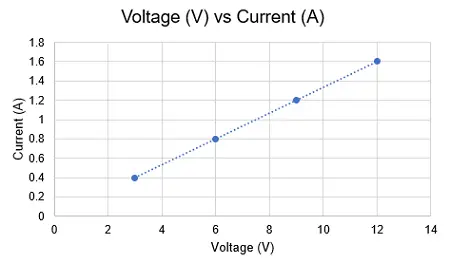Difference Between Current And Voltage With Comparison Table Circuit Diagram Learn the difference between voltage and current, their units, denotations, measuring instruments, inter-relation, and formulae. See how voltage and current change in series and parallel connections, and how they create different fields. Voltage is the potential difference between two points in a circuit, while current is the flow of electric charge. Voltage and current are related through Ohm's Law, which states that the current flowing through a conductor is directly proportional to the voltage applied across it, and vice versa.

What is Voltage? Voltage, also known as electric potential difference, is the force that pushes electric charges through a conductor.It is measured in volts (V) and can be thought of as the electrical pressure that drives current through a circuit.Voltage is generated by sources such as batteries, generators, or power supplies. Learn the basic concepts of voltage and current in electricity, their units, symbols, formulas, and types. Find out how voltage is the cause and current is the effect of electric force, and how they differ in alternating and direct circuits.

Difference Between Voltage And Current Circuit Diagram
Learn the basic concepts and differences between current and voltage, two related but distinct electrical quantities. Find out the formulas, units, types, and examples of current and voltage in DC and AC circuits. Learn the definitions, units, symbols, and relationships of current and voltage, two fundamental quantities in electricity. See how they behave in series and parallel circuits, and how they affect fields and intensity.

One of the major differences between voltage and current is that the voltage is the difference between the two points and the current is the flow of electrical charges between these two points of an electric field. Some others differences between them are explained below in the comparison chart. Content: Voltage Vs Current. Comparison Chart Both current and voltage are crucial for the operation of electronic devices, from smartphones to computers. Measurement. Current and voltage can be measured using different instruments. Current is typically measured using an ammeter, which is connected in series with the circuit to measure the flow of charge. Learn the key differences between voltage and current, the two fundamental concepts in electrical engineering. Voltage is the force that drives current, while current is the flow of charge through a circuit.
